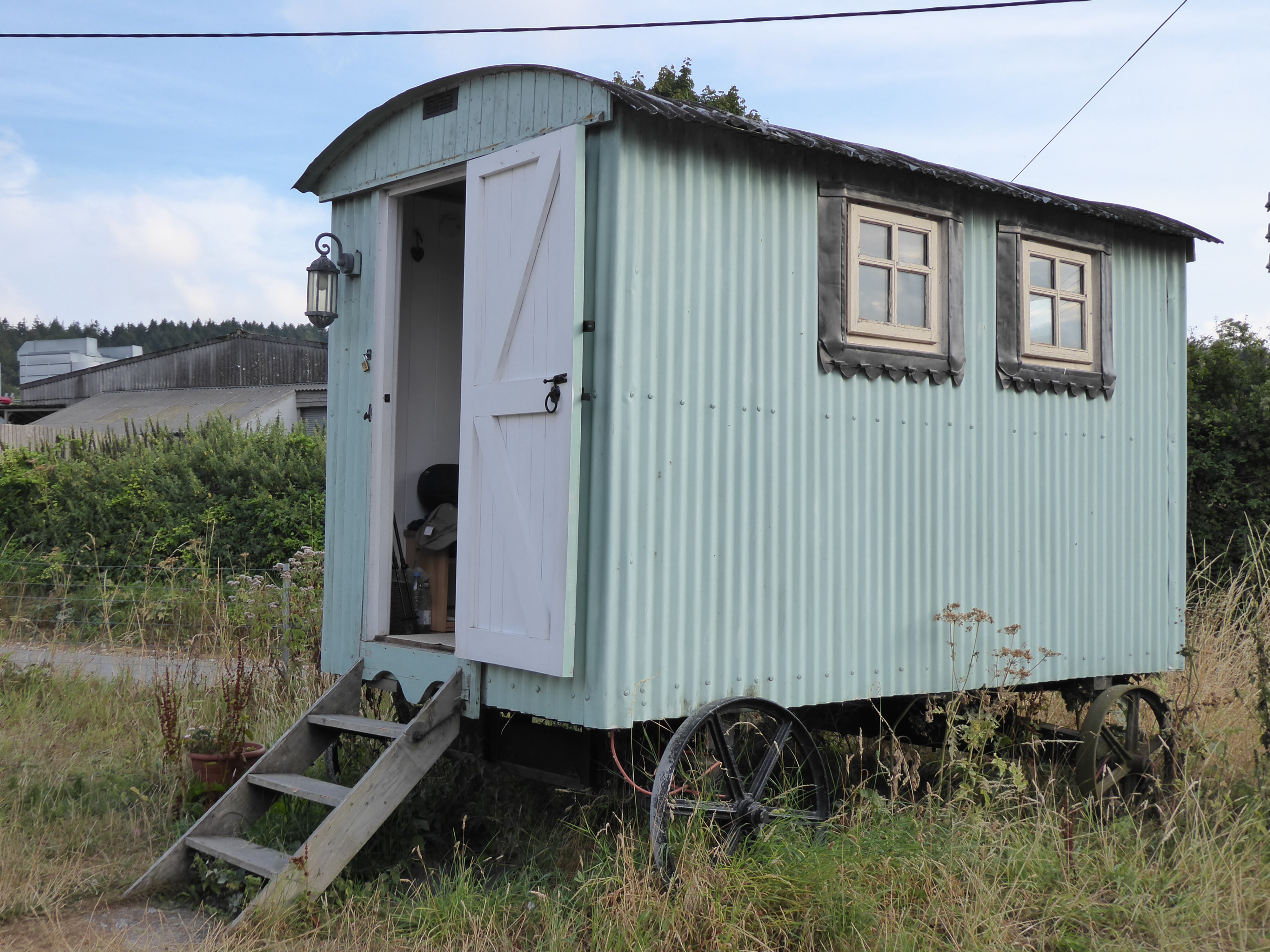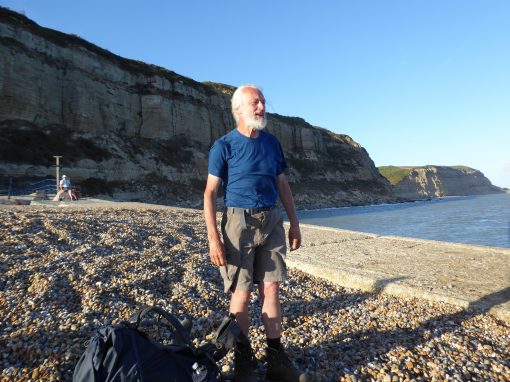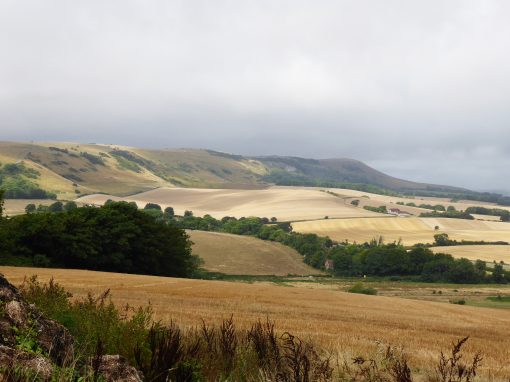20.4 miles – blessed rain, soft mist, a little sunshine later
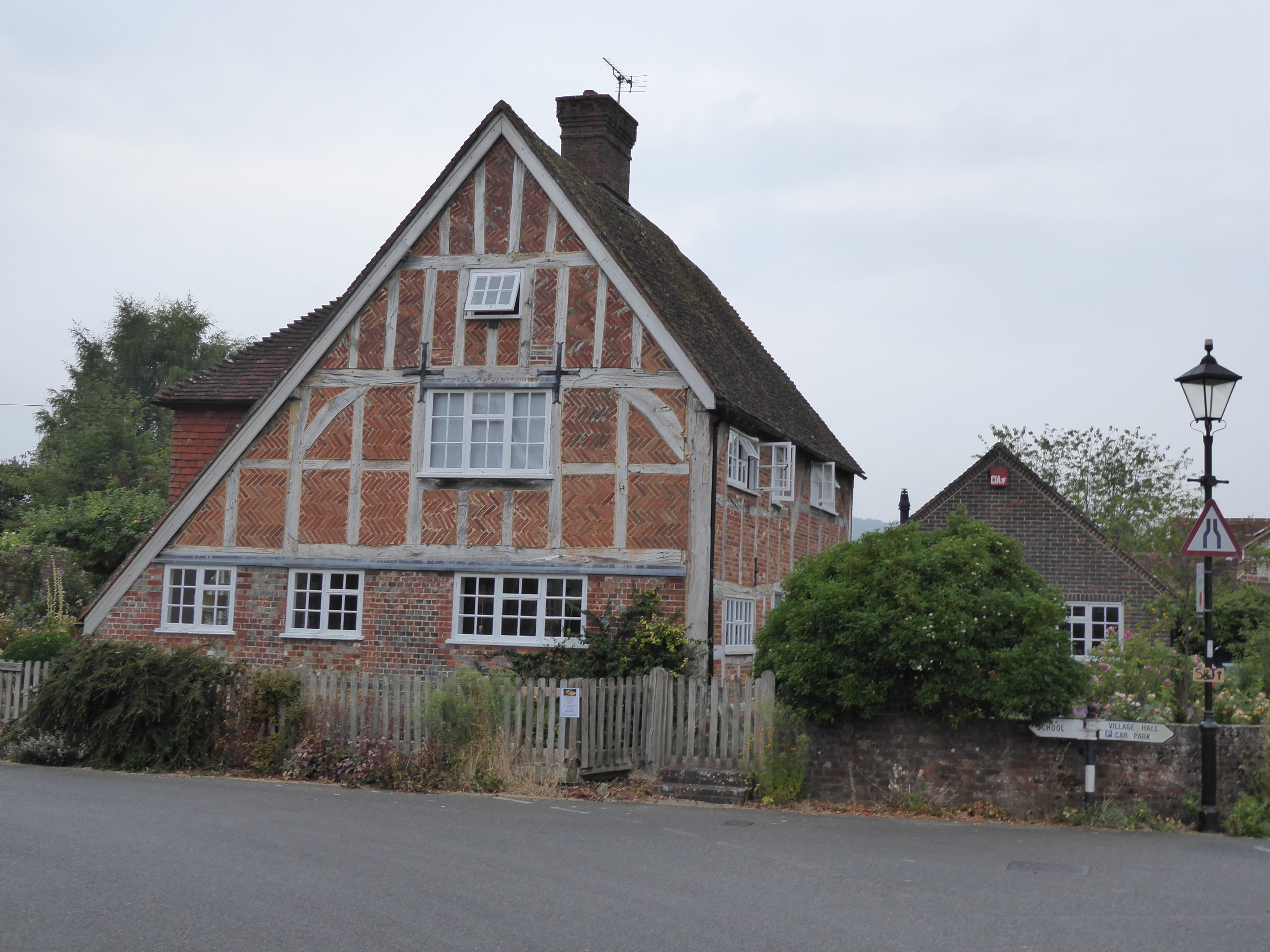
I left East Meon as the first drops of rain began to fall. The scent of dry-baked road wafted up to me. I wonder how it works. Perhaps tiny particles of road-smell are formed by the action of sunlight and are released into the atmosphere by the moisture.
Despite my lyrical words on Sunday (Day 82, INTERMISSION II) I still had an empty sense that I was now on a different walk from the one I started at Cape Wrath. I so wanted to join the pre-Winchester part to the post-Winchester section, and I did accomplish. I talked through every day of my trek from its start to the present moment, naming the places and recalling everything which stood out. It was when I got to the Haltwhistle to Alston stretch (Day 42) that the reconnection really happened, as I remembered how I had found myself then reconnected in feeling to a part of my childhood which had seemed cut off, remote. It was as if I had reached out into the starry night and held onto a starbeam. I was whole once more.
Late morning there was one ominous clap of thunder followed by a very heavy shower, during which I actually found shelter. I watched the rain bounce several inches off the ground. I felt the dry and barren earth was being reunited with her lover, the rain. reconnection was going on all around me.
The Hampshire Downs
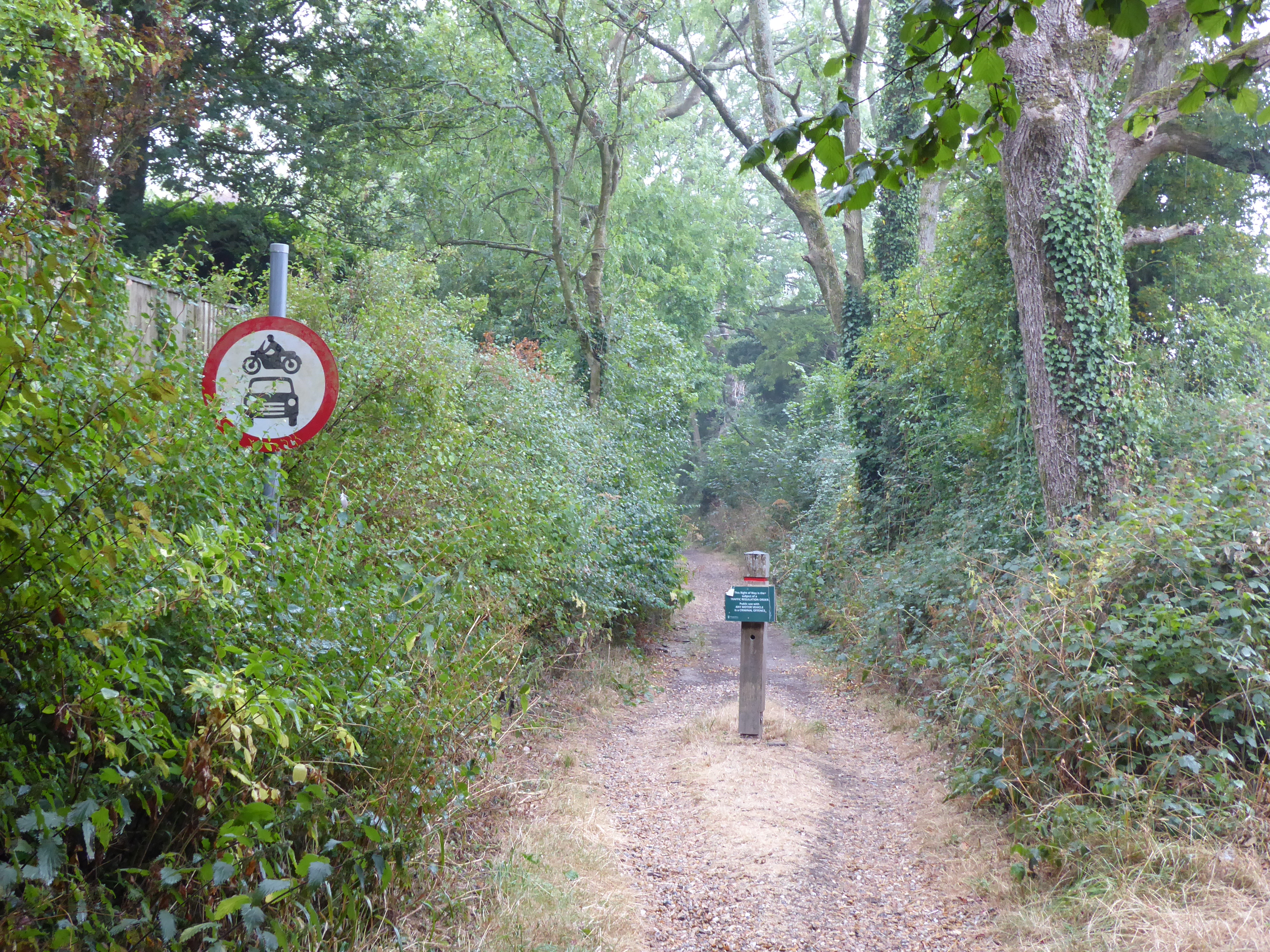
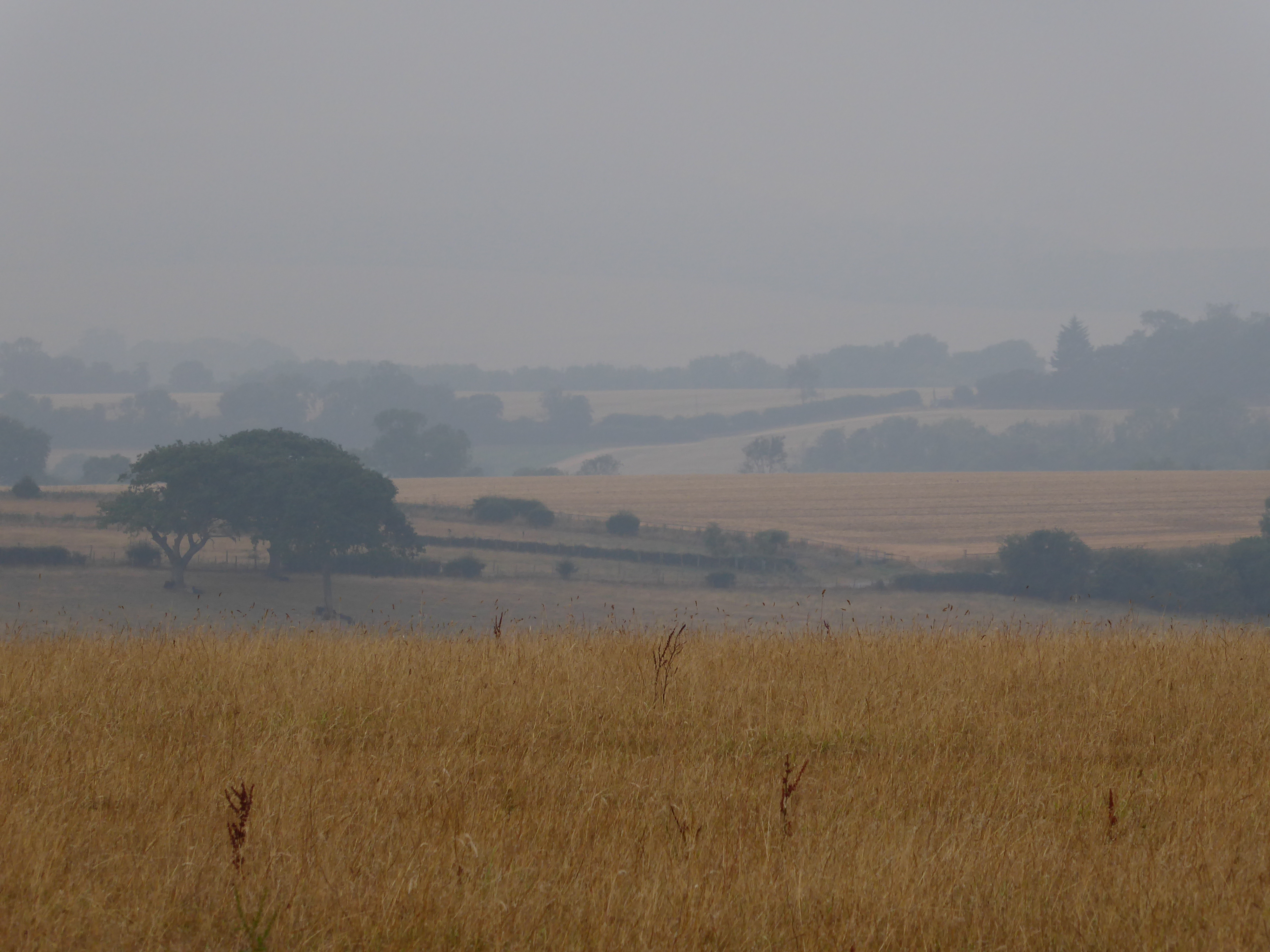
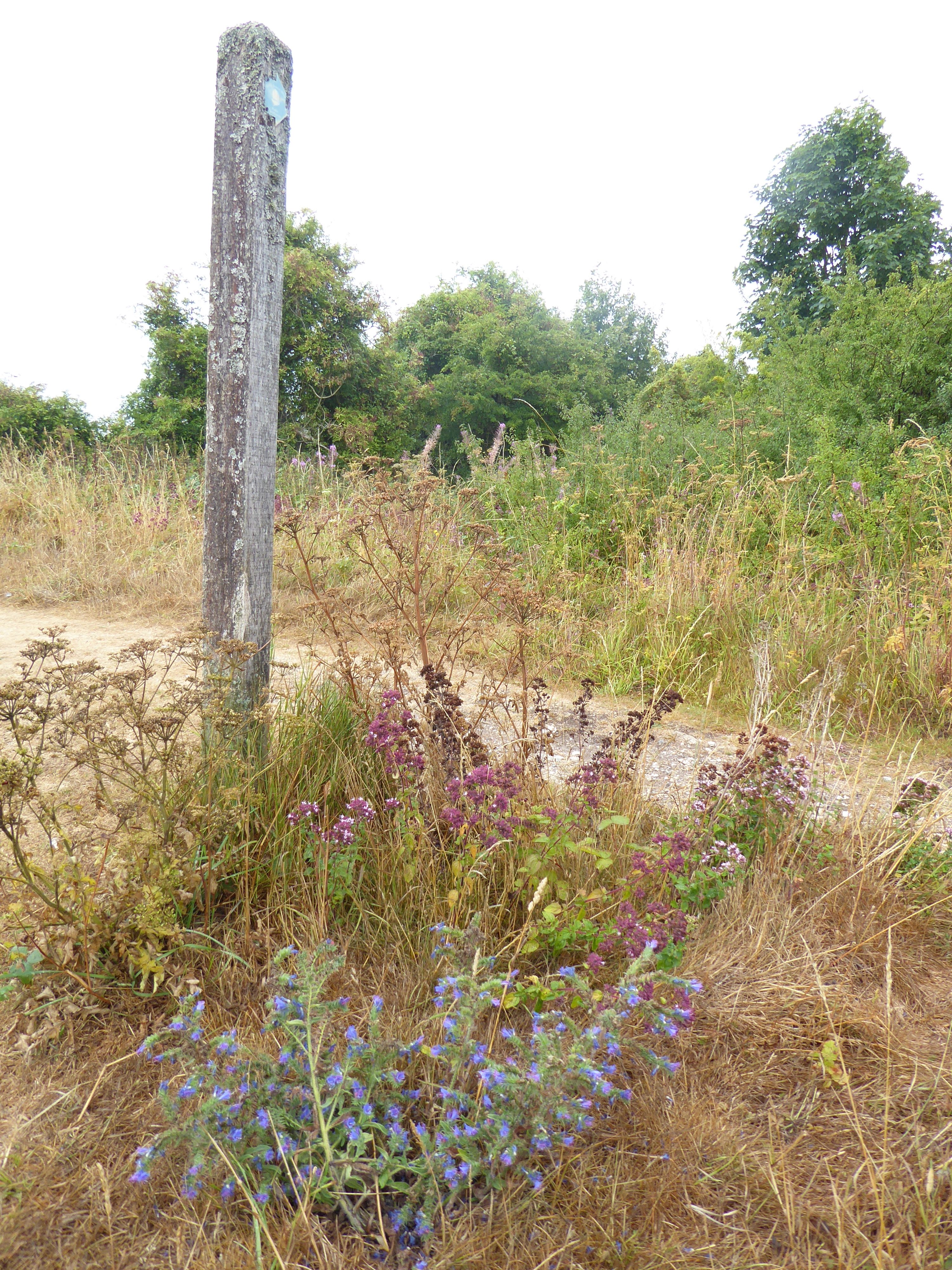
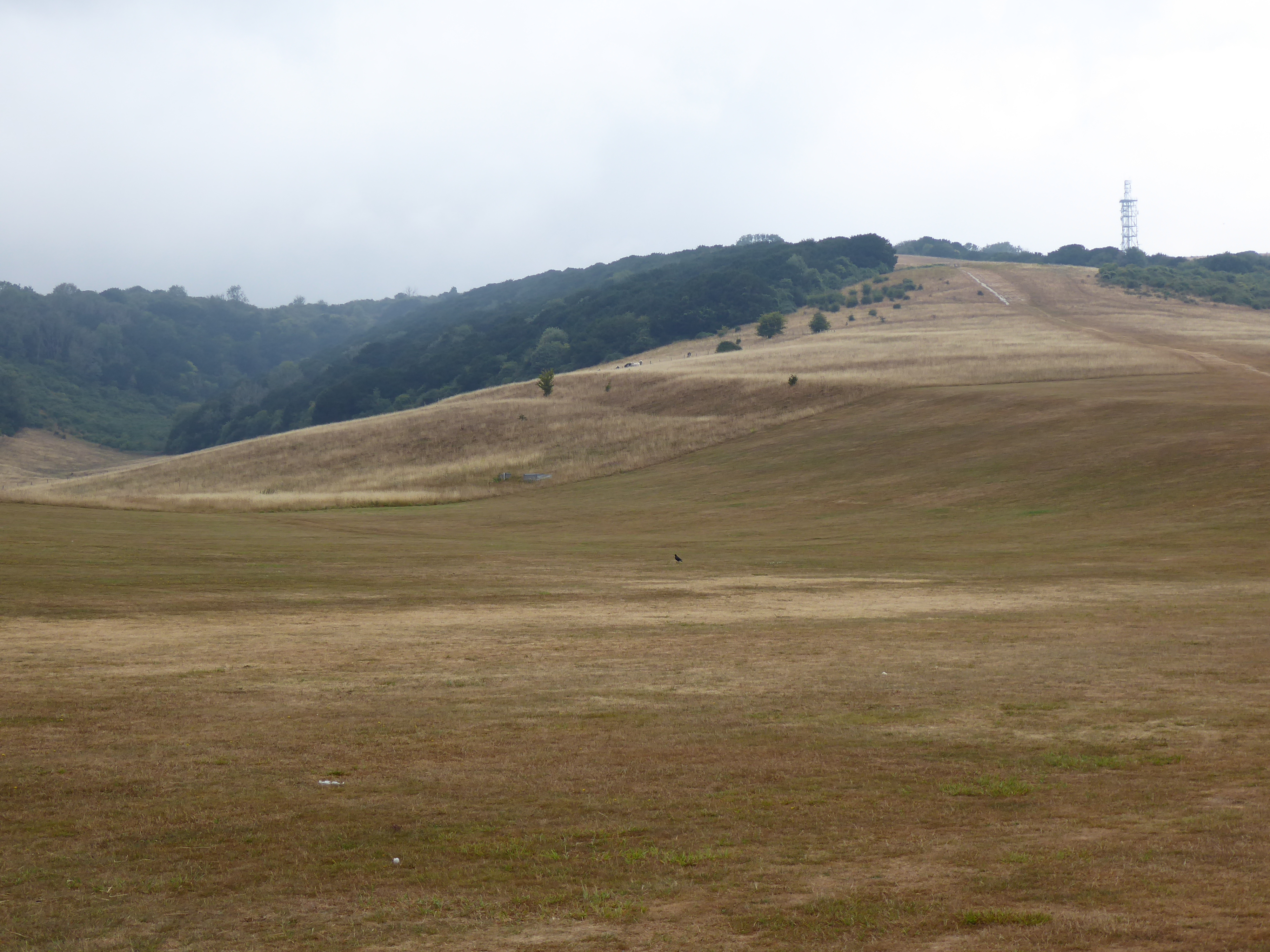
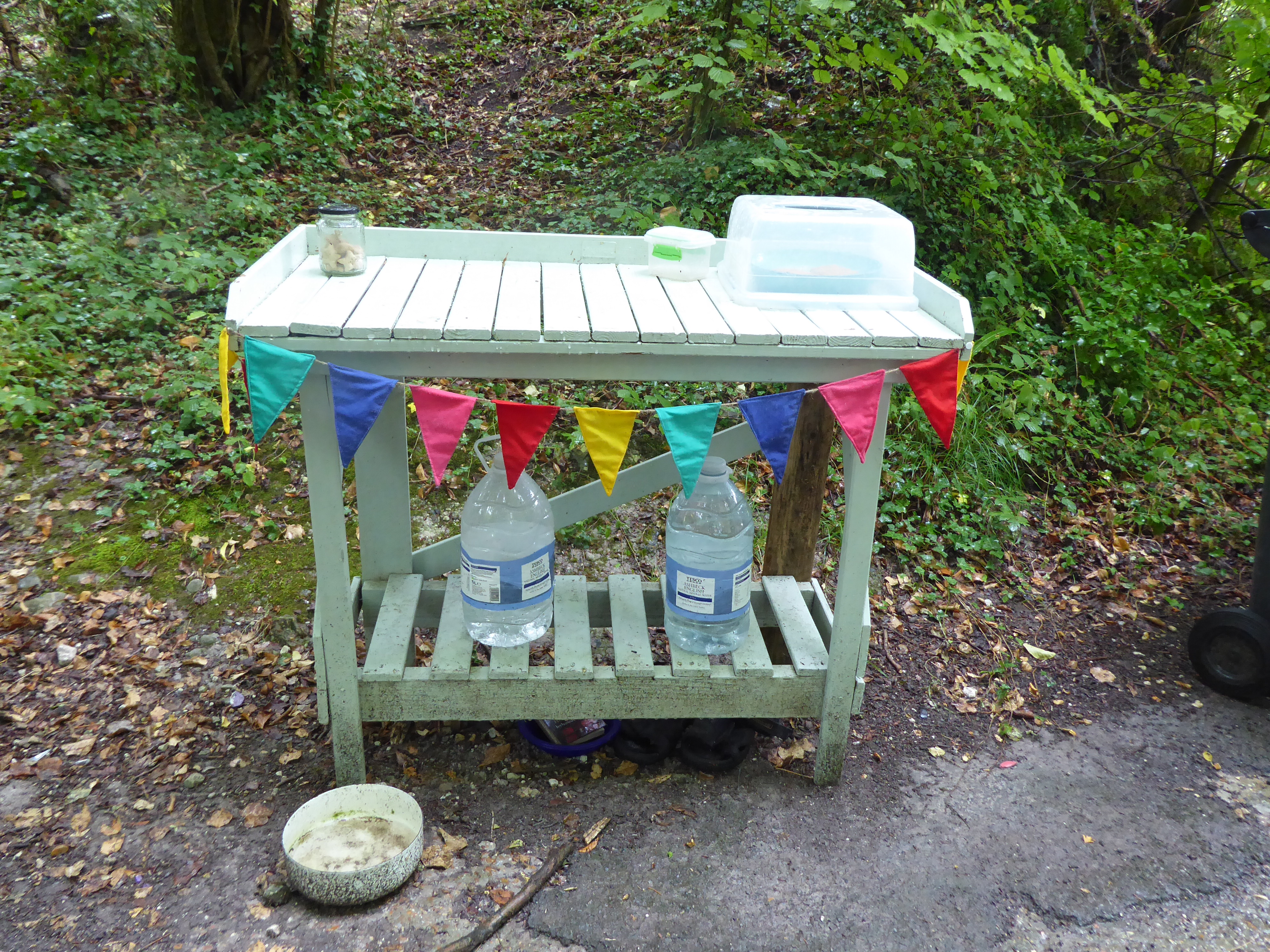
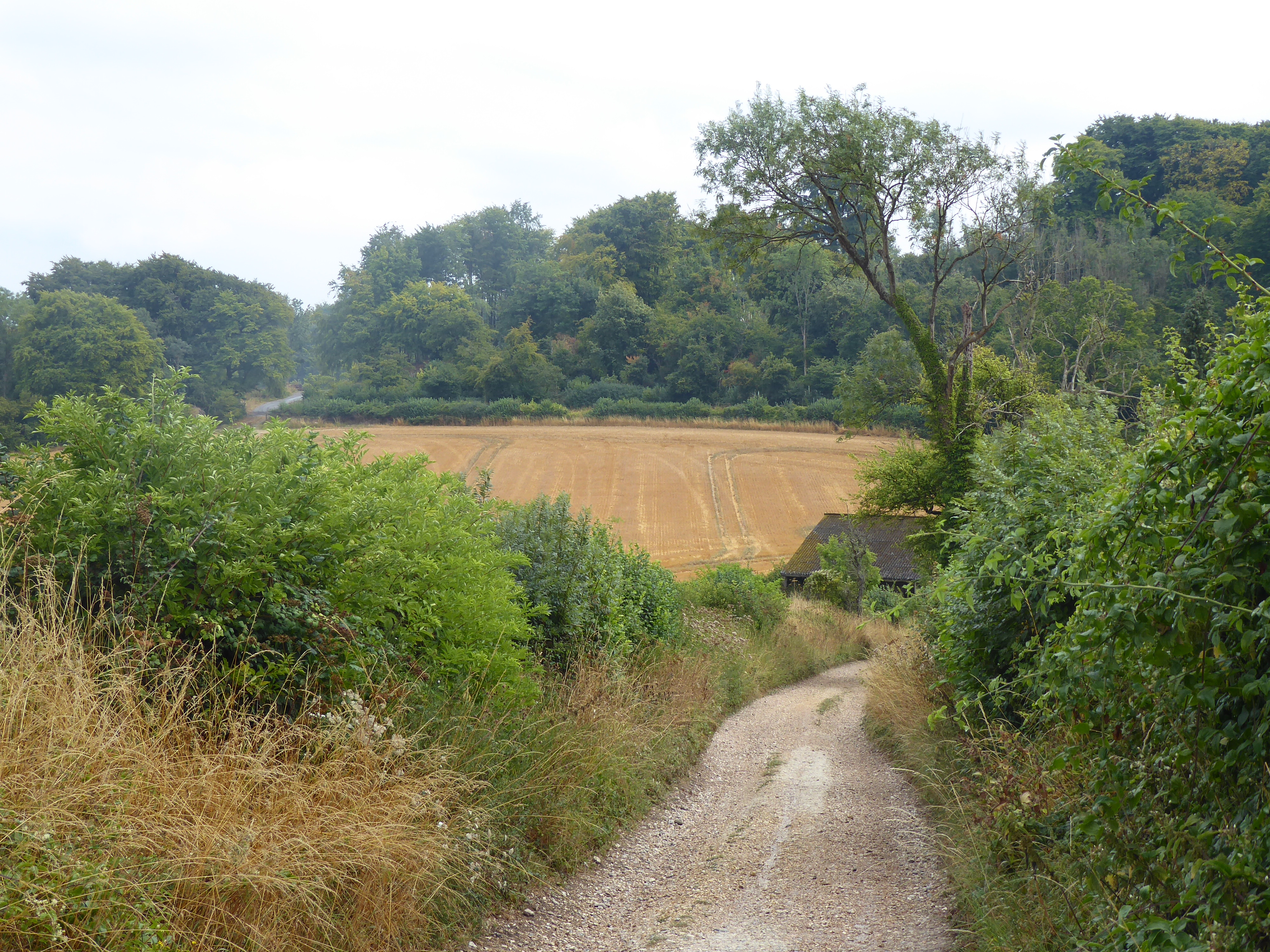
At 1:02 p.m. I crossed the border from Hampshire into my native Sussex. As soon as I did, I read the following poem aloud.
Sussex
God gave all men all earth to love,
But since our hearts are small,
Ordained for each one spot should prove
Belovèd over all;
That, as He watched Creation’s birth,
So we, in godlike mood,
May of our love create our earth
And see that it is good.
So one shall Baltic pines content,
As one some Surrey glade,
Or one the palm-grove’s droned lament
Before Levuka’s Trade.
Each to his choice, and I rejoice
The lot has fallen to me
In a fair ground—in a fair ground—
Yea, Sussex by the sea!
No tender-hearted garden crowns,
No bosomed woods adorn
Our blunt, bow-headed, whale-backed Downs,
But gnarled and writhen thorn—
Bare slopes where chasing shadows skim,
And, through the gaps revealed,
Belt upon belt, the wooded, dim,
Blue goodness of the Weald.
Clean of officious fence or hedge,
Half-wild and wholly tame,
The wise turf cloaks the white cliff edge
As when the Romans came.
What sign of those that fought and died
At shift of sword and sword?
The barrow and the camp abide,
The sunlight and the sward.
Here leaps ashore the full Sou’west
All heavy-winged with brine,
Here lies above the folded crest
The Channel’s leaden line;
And here the sea-fogs lap and cling,
And here, each warning each,
The sheep-bells and the ship-bells ring
Along the hidden beach.
We have no waters to delight
Our broad and brookless vales—
Only the dewpond on the height
Unfed, that never fails—
Whereby no tattered herbage tells
Which way the season flies—
Only our close-bit thyme that smells
Like dawn in Paradise.
Here through the strong and shadeless days
The tinkling silence thrills;
Or little, lost, Down churches praise
The Lord who made the hills:
But here the Old Gods guard their round,
And, in her secret heart,
The heathen kingdom Wilfrid found
Dreams, as she dwells, apart.
Though all the rest were all my share,
With equal soul I’d see
Her nine-and-thirty sisters fair,
Yet none more fair than she.
Choose ye your need from Thames to Tweed,
And I will choose instead
Such lands as lie ’twixt Rake and Rye,
Black Down and Beachy Head.
I will go out against the sun
Where the rolled scarp retires,
And the Long Man of Wilmington
Looks naked toward the shires;
And east till doubling Rother crawls
To find the fickle tide,
By dry and sea-forgotten walls,
Our ports of stranded pride.
I will go north about the shaws
And the deep ghylls that breed
Huge oaks and old, the which we hold
No more than Sussex weed;
Or south where windy Piddinghoe’s
Begilded dolphin veers
And red beside wide-bankèd Ouse
Lie down our Sussex steers.
So to the land our hearts we give
Till the sure magic strike,
And Memory, Use, and Love make live
Us and our fields alike—
That deeper than our speech and thought,
Beyond our reason’s sway,
Clay of the pit whence we were wrought
Yearns to its fellow-clay.
God gives all men all earth to love,
But since man’s heart is small,
Ordains for each one spot shall prove
Beloved over all.
Each to his choice, and I rejoice
The lot has fallen to me
In a fair ground—in a fair ground—
Yea, Sussex by the sea!
Rudyard Kipling
I wept – I always do.
I first encountered Sussex twelve years ago in my monastic cell in Russia. I was, in theory, teaching the abbot English. I knew he liked Kipling, and I was looking for something to use in a lesson. When I read the list of places so familiar to me: The lands which lie ’twixt Rake and Rye, Black Down and Beachy Head. I found that tears were running down my cheeks. I knew then for the first time I was homesick.
The Sussex Downs
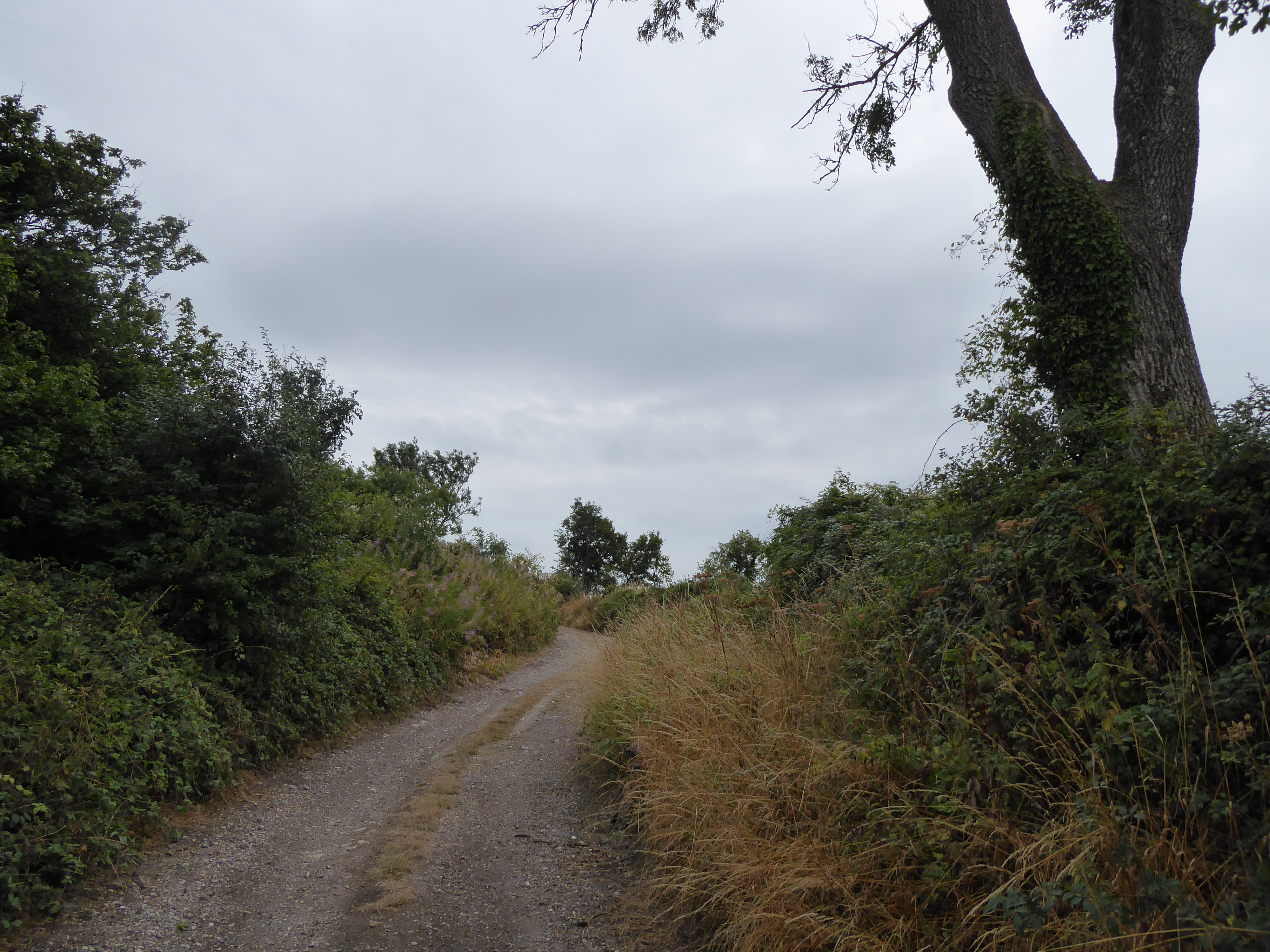
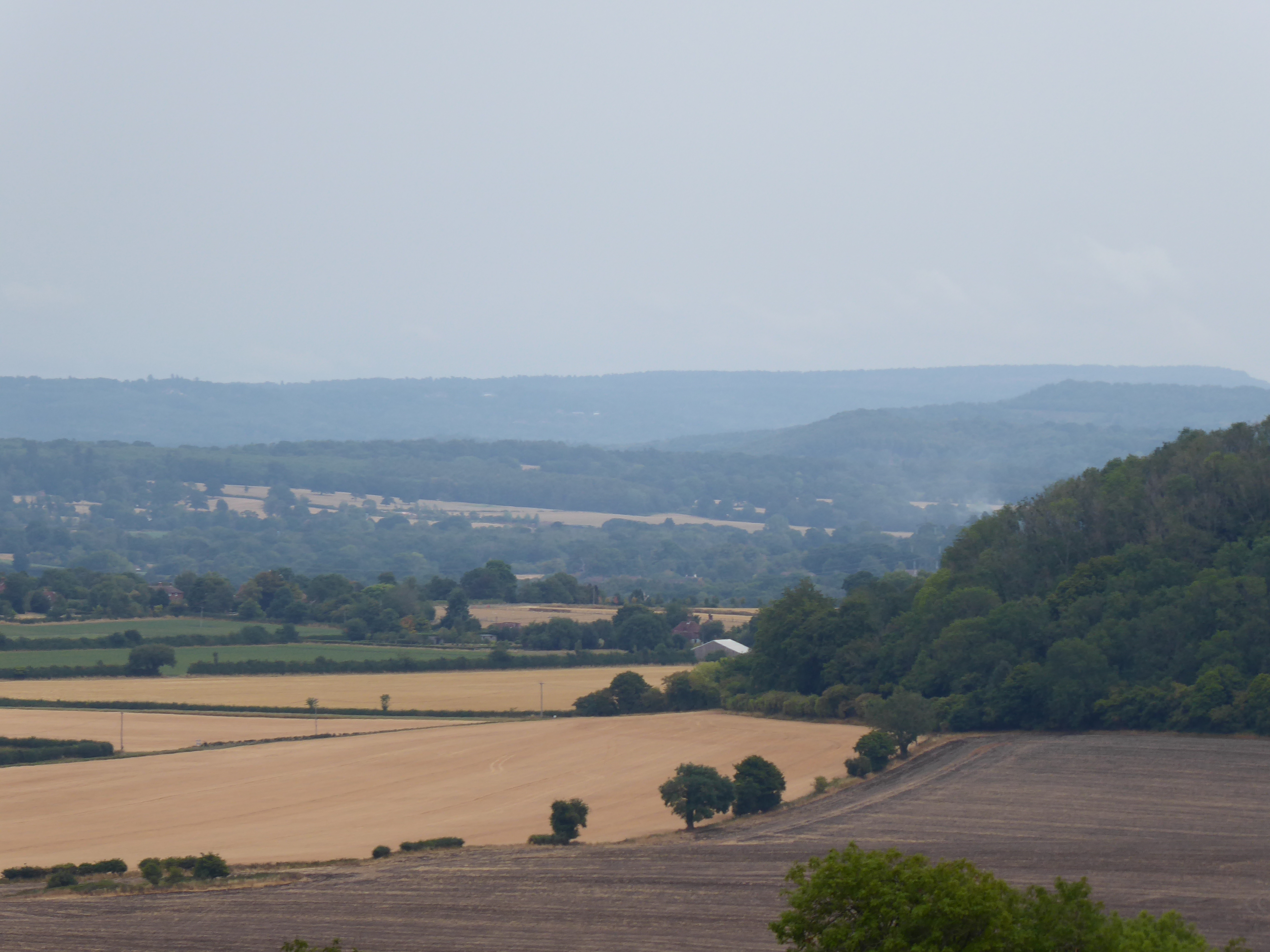
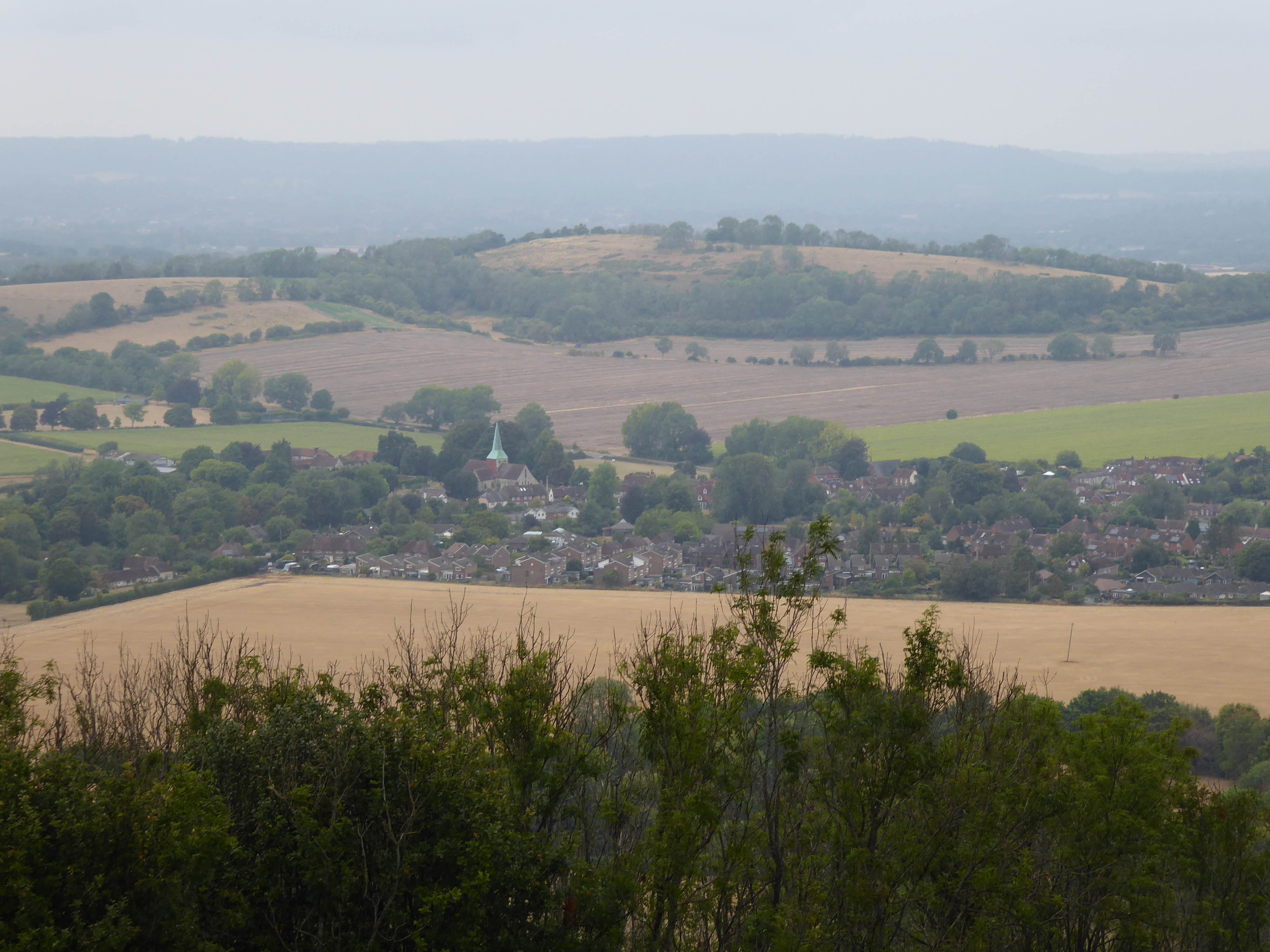
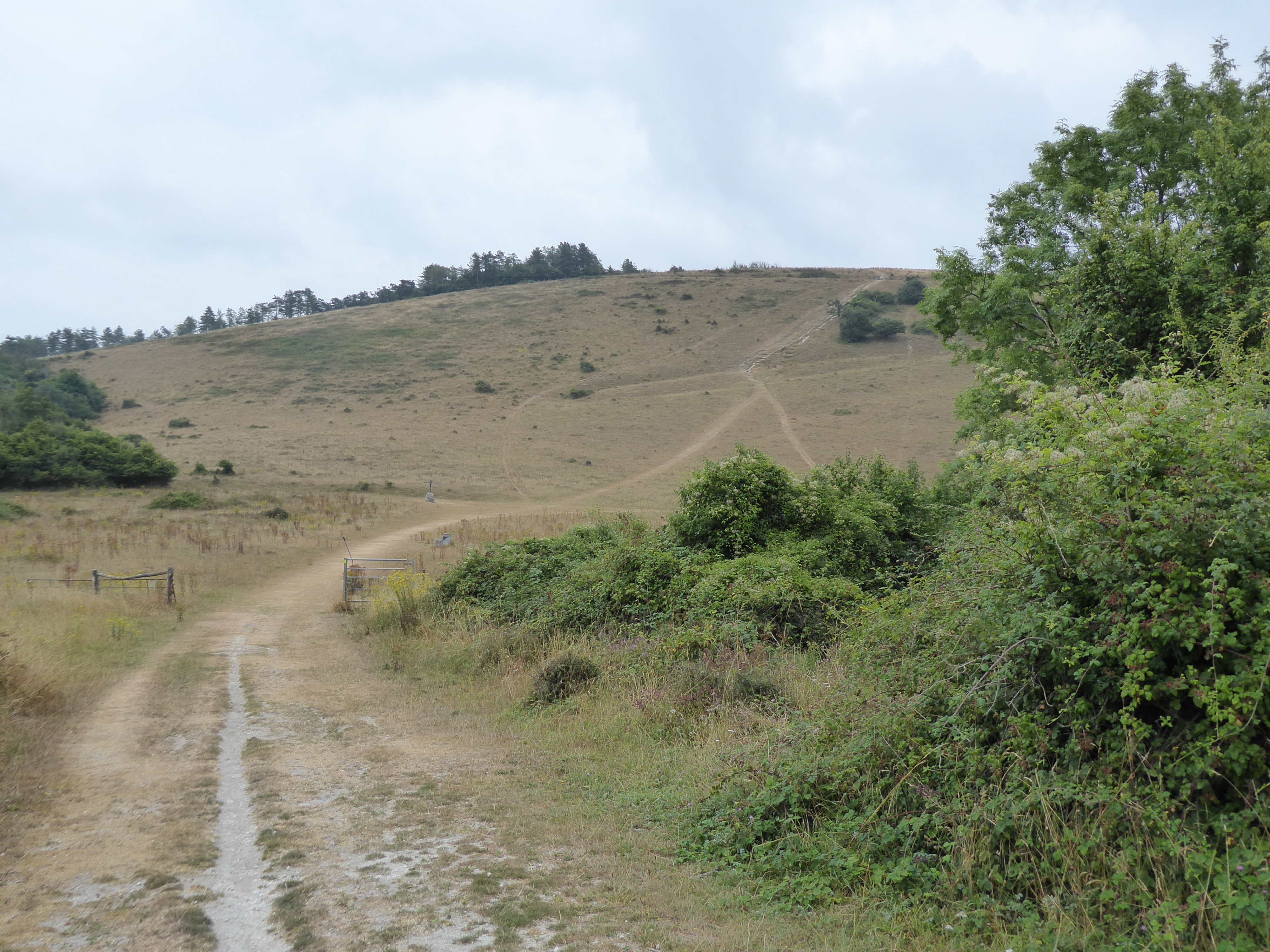
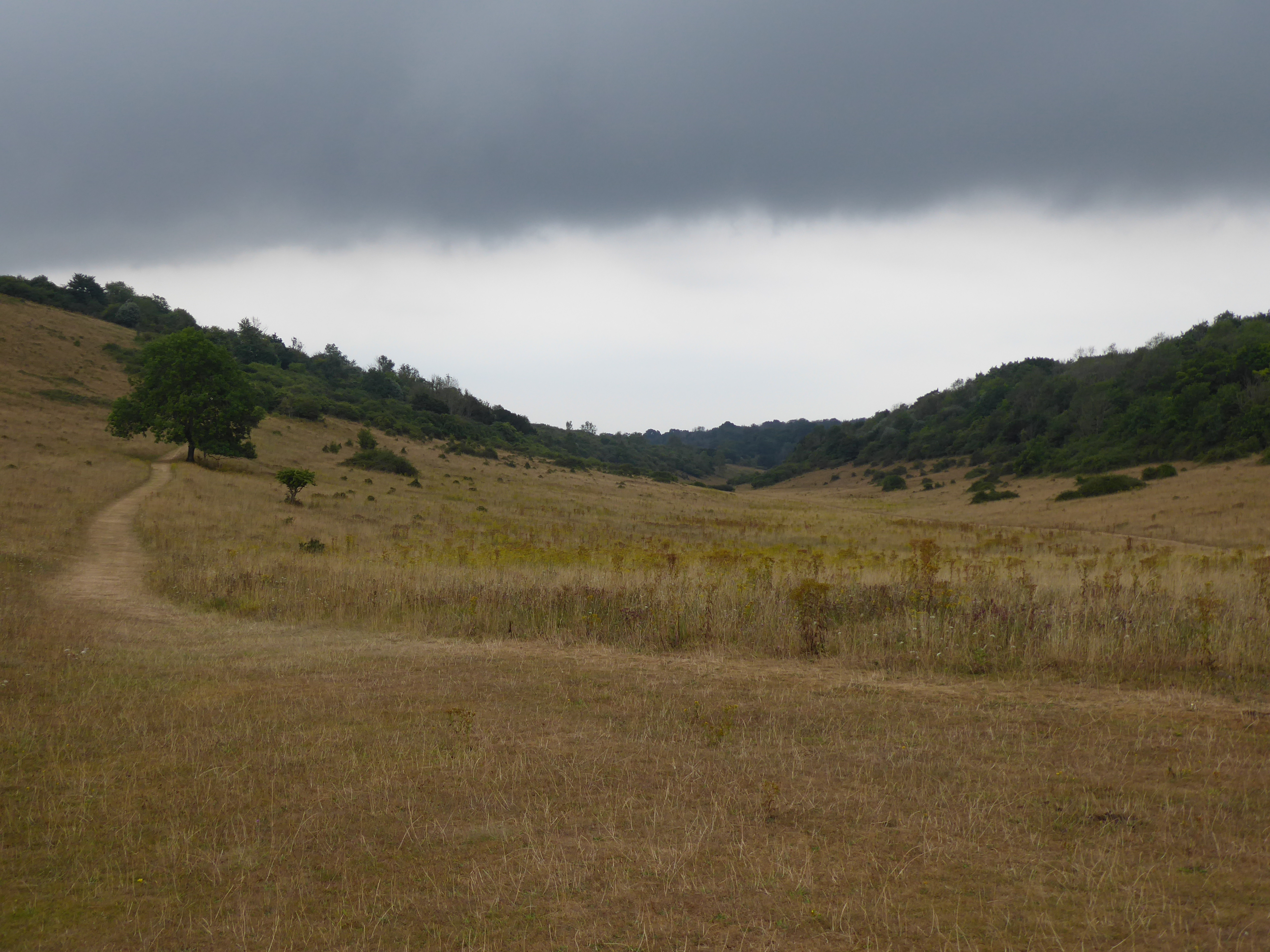
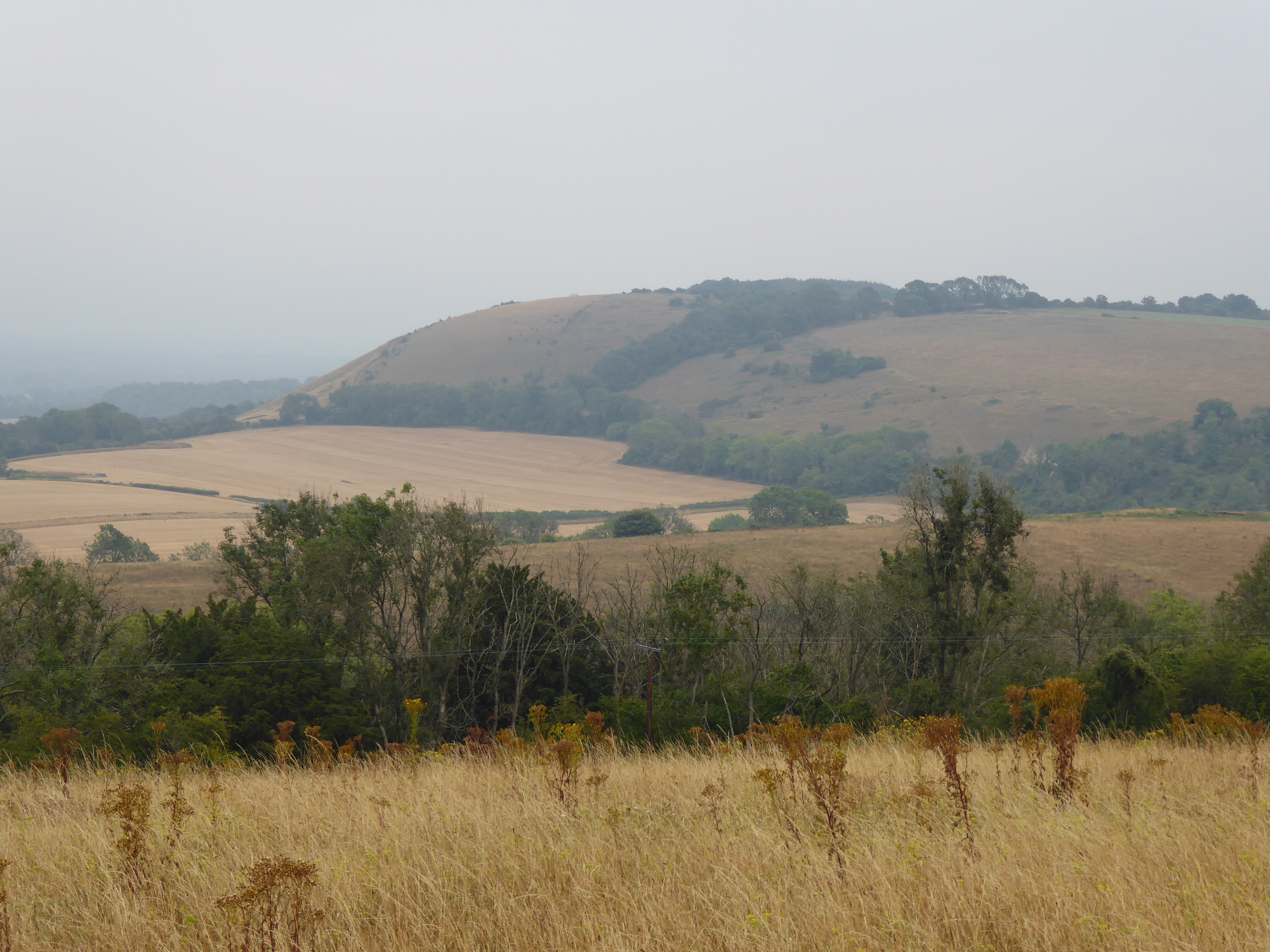
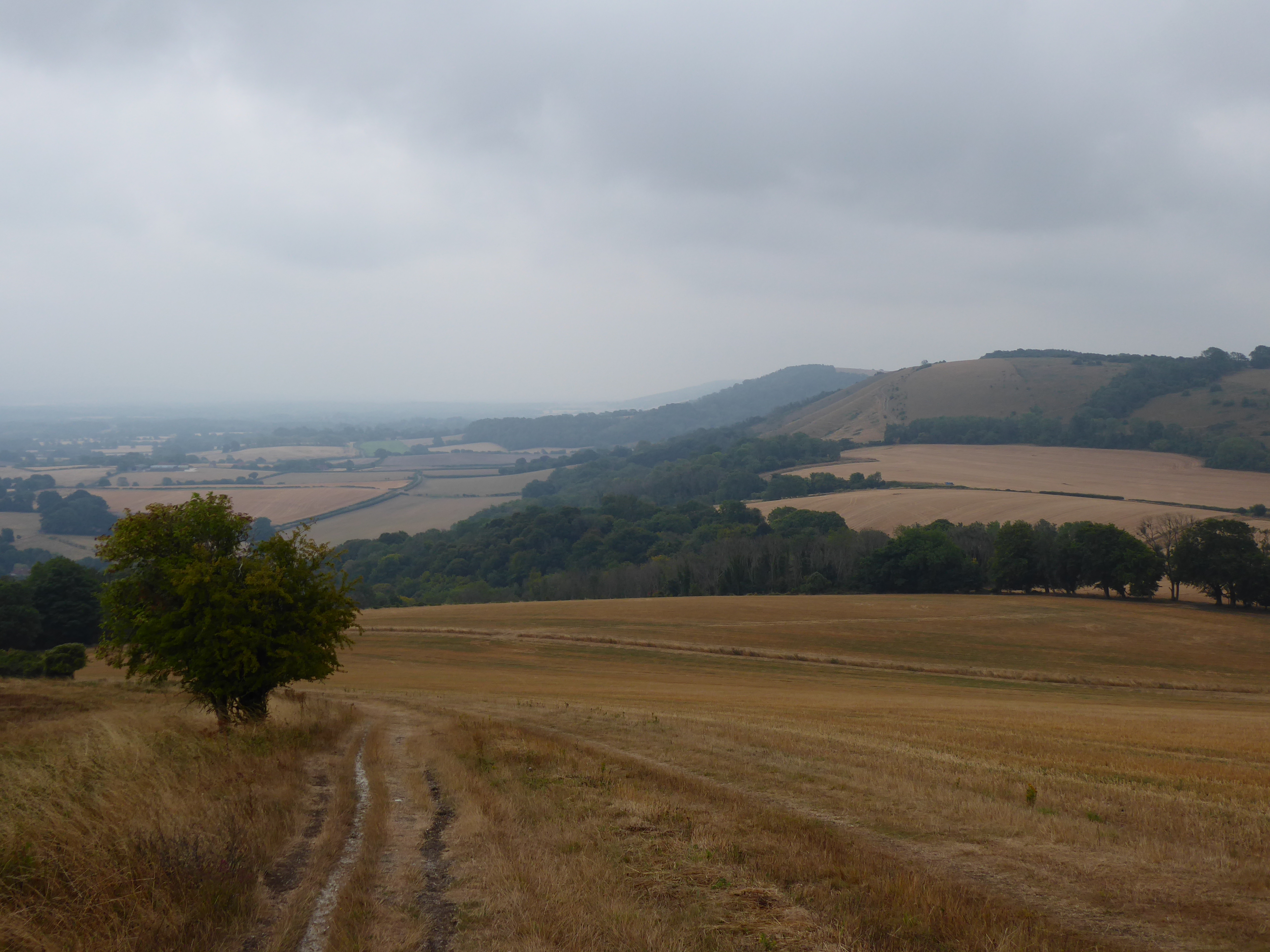
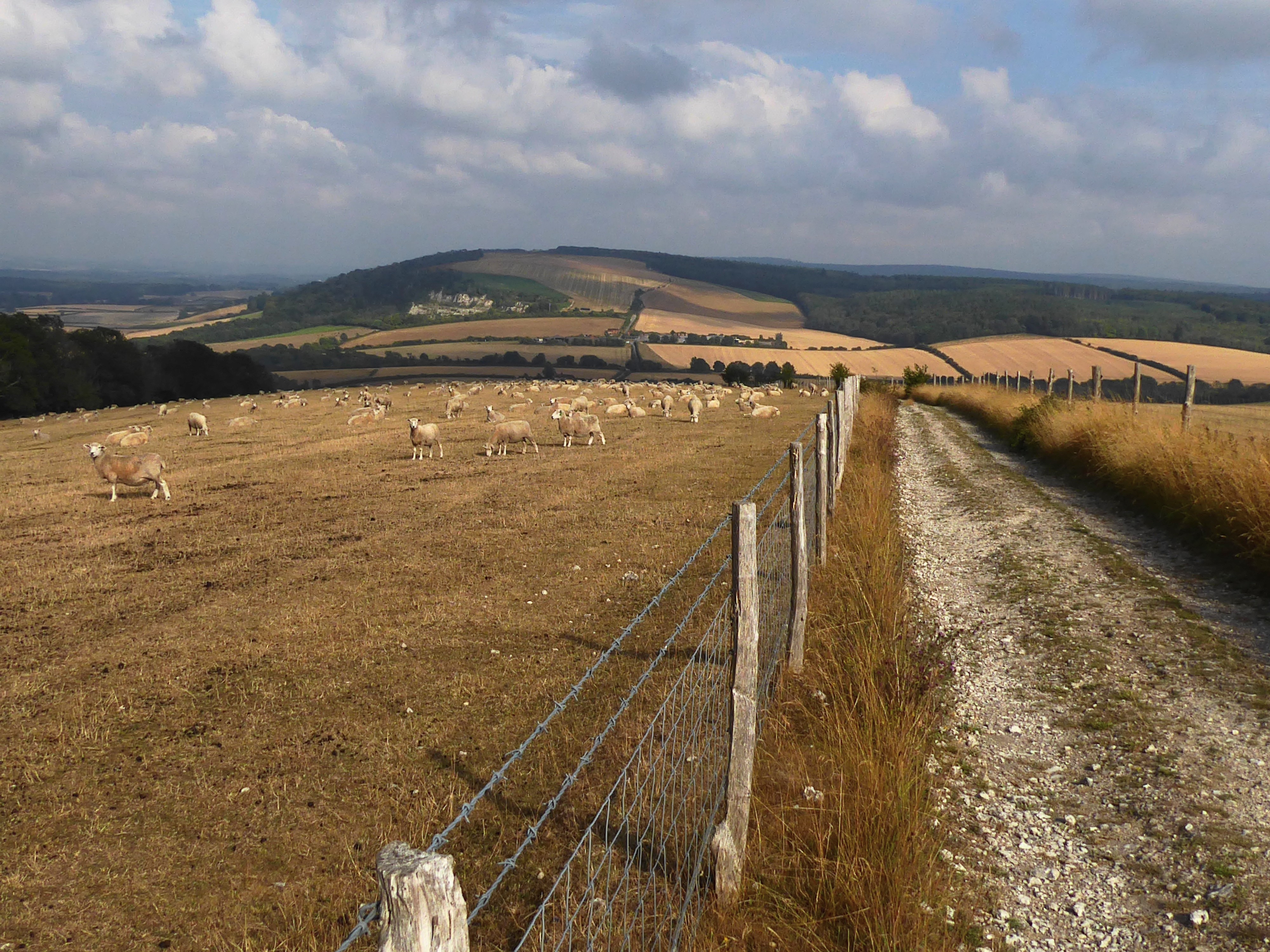
My resting place for the night was to be in a shepherd’s hut, which, according to Manor Farm’s website, was once actually occupied by a shepherd. Whether it was a shepherd as we might romantically suppose them to have been, or just a youth who was keeping a low profile from the police and happened to like sheep, I cannot judge – and nor, frankly does it matter. It was a bright and pretty place to spend the night.
